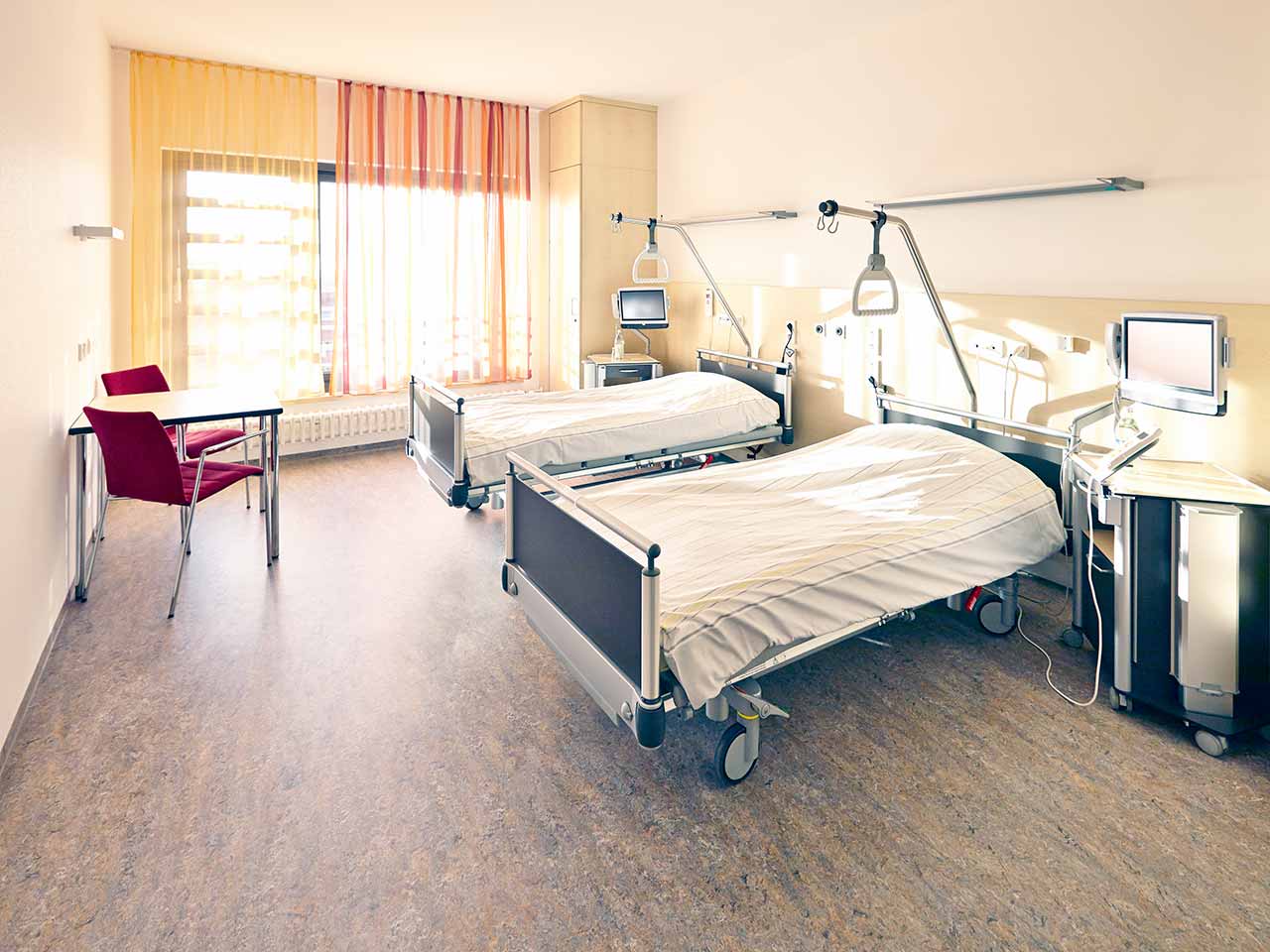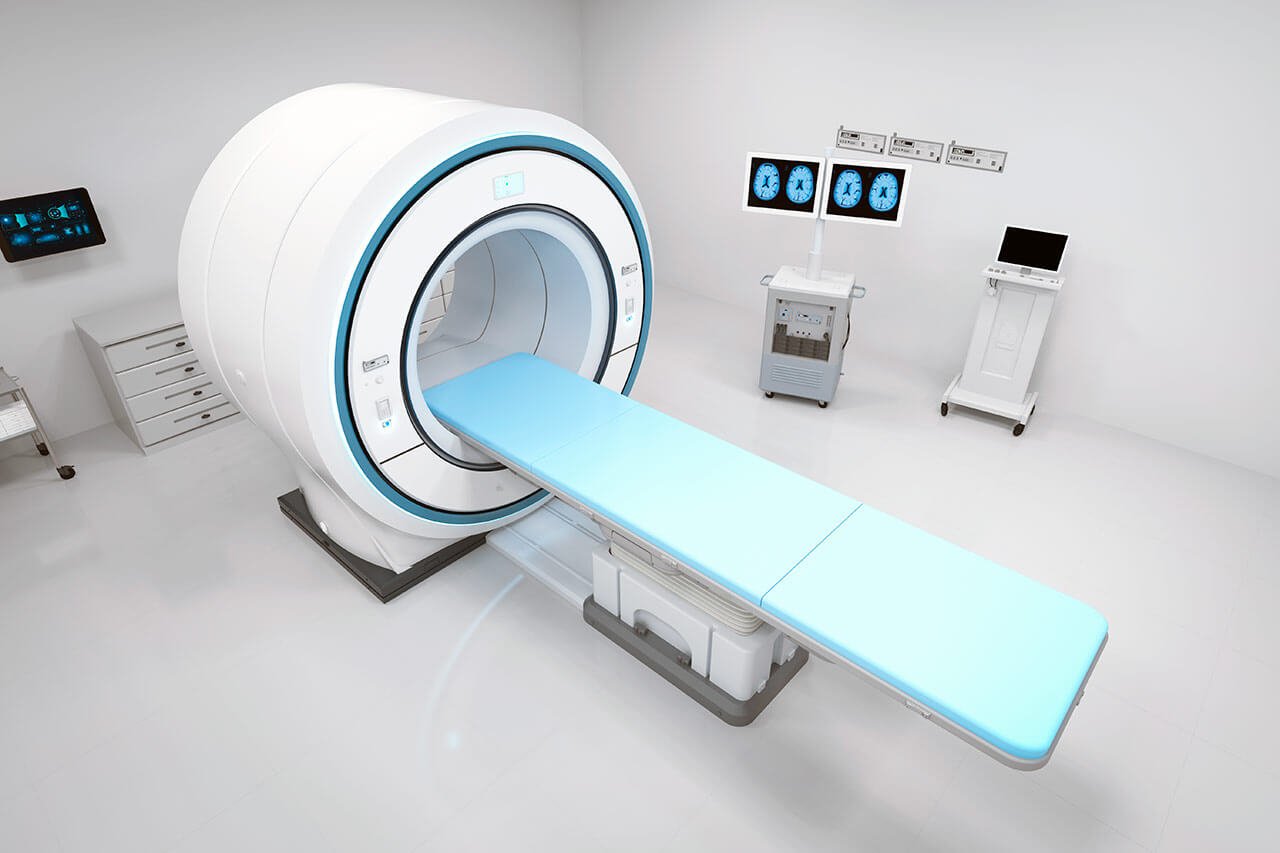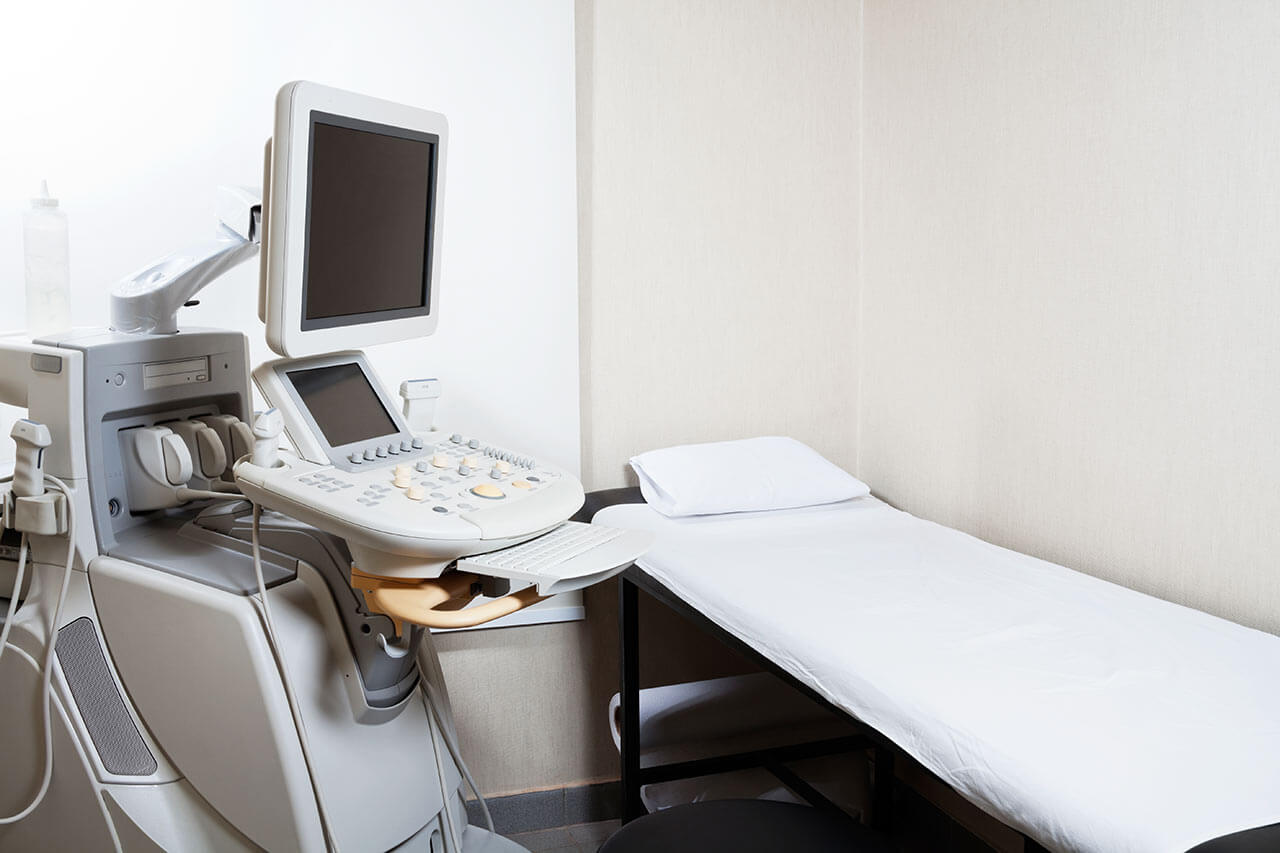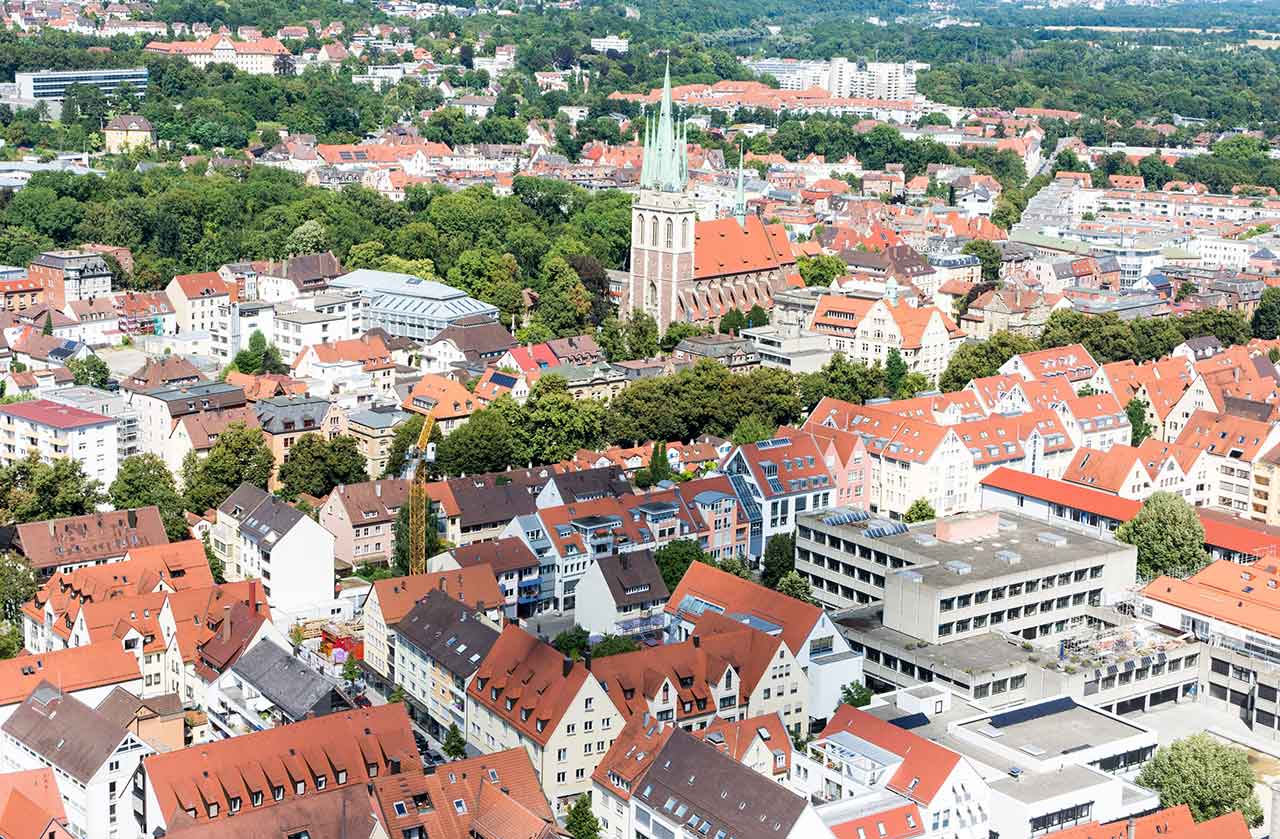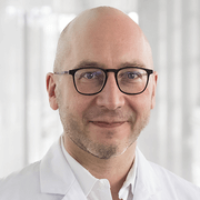
About the Department of Nuclear Medicine at University Hospital Ulm
The Department of Nuclear Medicine at the University Hospital Ulm offers the full range of medical services in this area. The department successfully performs both diagnostic and therapeutic procedures using radioactive agents. The diagnostic range of services includes PET/MRI, PET/CT, SPECT, SPECT/CT, and scintigraphy. The therapeutic offer includes radioiodine therapy, peptide receptor radionuclide therapy, Lutetium-177 PSMA therapy, selective internal radiation therapy (SIRT), and other innovative radionuclide treatments. Of particular interest to the department's specialists are the diagnostics and treatment of thyroid, heart, brain, and oncological diseases. The department is also actively engaged in productive research activities, thanks to which many innovative therapeutic methods are implemented in clinical practice. As one of the best and largest medical facilities of its kind in Germany, the department has its own modern cyclotron for the production of radioisotopes that are used during diagnostic and therapeutic procedures. The department is certified in accordance with DIN EN ISO 9001:2015 for providing top-class medical service in the area of its competence. In addition, the medical institution is certified by the German Cancer Society (DKG) for the treatment of various types of cancer. The department is headed by Prof. Dr. med. Ambros Johannes Beer.
One of the most popular treatment methods in the department is radioiodine therapy. This therapeutic method is successfully used in the department to fight thyroid cancer and hyperthyroidism. The essence of radioiodine therapy is as follows: the patient receives radioactive iodine (iodine-131) in the form of a capsule or in liquid form, after which the radiopharmaceutical enters the bloodstream; it is absorbed by atypical thyroid cells and begins to release radiation, causing their death. Treatment is usually carried out on an inpatient basis, with a hospital stay of 2-5 days (depending on the type of disease and the individual clinical situation). Radioiodine therapy is a safe treatment method, the effectiveness of which is comparable to surgery.
The medical facility also offers peptide receptor radionuclide therapy (PRRT) for the treatment of neuroendocrine tumors. There are receptors for somatostatin, a peptide hormone, on the surface of neuroendocrine tumor cells, so the department's specialists combine a somatostatin analogue with a radionuclide (Lutetium-177) to carry out PRRT. Thus, after intravenous injection, the radiopharmaceutical goes straight to the cancer focus. Upon reaching the target, the radioisotope begins to emit radiation that destroys cancer cells. Lutetium-177 emits high-energy beta particles, the radius of action of which is only a few millimeters, due to which a highly precise targeting effect on the tumor focus is achieved without damaging neighboring healthy tissues. Peptide receptor radionuclide therapy is well tolerated, causes virtually no side effects, and provides effective results. As a rule, the course of treatment with PRRT therapy consists of several cycles, which are carried out at intervals of several months.
The department's specialists have vast experience in Lutetium-177 PSMA therapy. This treatment method is indicated for patients with metastatic prostate cancer. PSMA is a type of protein that is found on the surface of prostate cells. In cases of prostate cancer, the concentration of this protein in cells increases hundreds of times. As the pathology metastasizes, PSMA is also detected in the affected organs and tissues. To perform PSMA therapy, the radioisotope Lutetium-177 is bound to the PSMA ligand and injected into the patient. The radiopharmaceutical binds to PSMA receptors and emits beta radiation, which gradually destroys cancer cells. The treatment is carried out on an inpatient basis, with a hospital stay of 2-3 days. This method demonstrates high efficiency, is well tolerated, and facilitates significant improvements in the patient's condition.
The department's range of medical services includes:
- Diagnostic options
- PET/CT
- PET/MRI
- SPECT
- SPECT/CT
- Scintigraphy
- Therapeutic options
- Radioiodine therapy
- Peptide receptor radionuclide therapy
- Lutetium-177 PSMA therapy
- Selective internal radiation therapy (SIRT)
- Ra-223 therapy (Xofigo®)
- Radioimmunotherapy with 90Y-labeled anti-CD66 antibody
- Other diagnostic and treatment methods
Curriculum vitae
Higher Education and Professional Career
- 1992 - 1999 Medical studies, Ludwig Maximilian University of Munich.
- 1999 Thesis defense, Institute of Radiation Biology, Ludwig Maximilian University of Munich.
- 2001 Admission to medical practice.
- 1999 - 2001 Assistant Physician, Institute of Diagnostic and Interventional Radiology, University Hospital Rechts der Isar Munich.
- 2001 Consultant for computed tomography, Siemens Medical Solutions.
- 2001 - 2003 Assistant Physician, Institute of Diagnostic and Interventional Radiology, University Hospital Rechts der Isar Munich.
- 2003 - 2004 Assistant Physician, Department of Nuclear Medicine, University Hospital Rechts der Isar Munich.
- 2004 - 2006 Assistant Physician, Institute of Diagnostic and Interventional Radiology, University Hospital Rechts der Isar Munich.
- 2006 - 2009 Assistant Physician, Department of Nuclear Medicine, University Hospital Rechts der Isar Munich.
- 2006 Board certification in Radiology.
- 2007 Habilitation in Nuclear Medicine.
- 2009 Board certification in Nuclear Medicine.
- 2009 - 2014 Senior Physician, Department of Nuclear Medicine, University Hospital Rechts der Isar Munich.
- 2014 Extraordinary Professorship for Nuclear Medicine.
- Since 2014 Professor and Head Physician of the Department of Nuclear Medicine at the University Hospital Ulm.
Prizes, Awards, and Honors
- 2004 "Image of the Year", Annual Conference of the German Society of Nuclear Medicine (DGN), Rostock.
- 2005 Young Investigator Award from the Society of Nuclear Medicine at the Technical University of Munich.
- 2005 First place in the nomination "Outstanding Clinical Trials" in the Journal of Nuclear Medicine, Annual Meeting of the Society of Nuclear Medicine (SNM), San Diego.
- 2007 Best Clinical Document (3rd Place) of the Young Specialists Committee of the Society of Nuclear Medicine, Annual Meeting of the Society of Nuclear Medicine (SNM), Washington DC.
- 2008 First Place, "International Symposium on Cardiovascular Disease Research", Annual Meeting of the Society of Nuclear Medicine (SNM), New Orleans.
- 2008 Honorary Award from the Bavarian Radiological Society, "Imaging of the human antigen-specific cytotoxic T-lymphocytes marked with the superparamagnetic iron oxide particles".
- 2008 Honorary Award from the Bavarian Radiological Society, "Magnetic resonance imaging in patients with rectal cancer before neoadjuvant chemotherapy for the prediction of low-risk circular resection and survival rate improvement".
- 2009 Molecular Imaging Travel Award for Publication, Annual Meeting of the Radiological Society of North America (RSNA), Chicago.
- 2010 Center of Excellence for Molecular Imaging, Young Researcher Award (2nd place), Annual Meeting of the Society of Nuclear Medicine (SNM), Salt Lake City.
Memberships in Professional Societies
- Society of Southwest Germany Radiologists and Nuclear Medicine Specialists (President).
- German Society of Nuclear Medicine (DGN).
- European Association of Nuclear Medicine (EANM).
- German Radiological Society (DRG).
- Society of Nuclear Medicine (SNM).
- Radiological Society of North America (RSNA).
Photo of the doctor: (c) Universitätsklinikum Ulm
